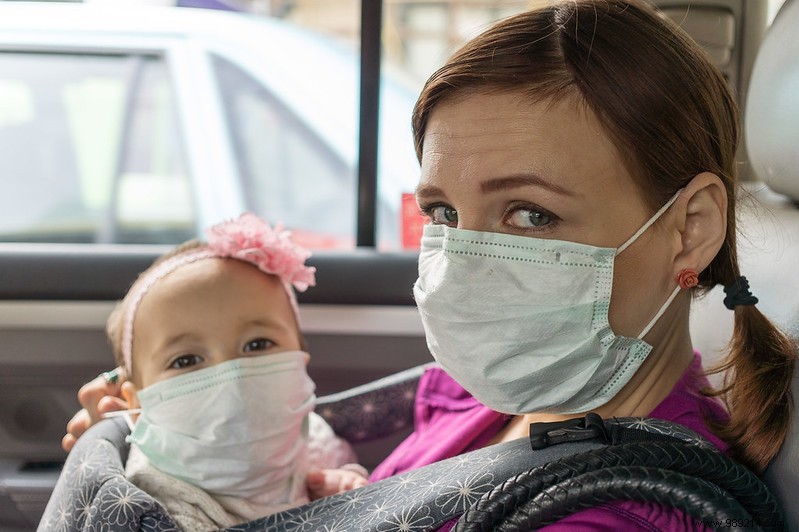Health and political authorities have not ruled in the same way on wearing a mask. Some recommend it in certain cases and others lean towards the whole population getting involved. However, the scientists themselves do not agree with each other since contradictory studies have followed one another.
For the World Health Organization (WHO), wearing a protective mask is essential for those caring for people infected with Covid-19 . The organization also clarified that there is currently no evidence that wearing a mask – by someone in good health – could be effective.
This position, for example, the French government followed it for a long time before finally switching. In our country, it is now compulsory to wear a mask in transport . Citizens have even been called upon to wear a protective mask for the general public when it comes to leaving the home. However, this same kind of about-face is taking place in the United Kingdom, not without difficulty.

As the British daily newspaper The Guardian explained on May 4, 2020, a report by the Royal Society found it beneficial for the general population to wear a mask. Officials say mask use could reduce transmission from asymptomatic carriers and pre-symptomatic. However, their effectiveness would take on its full meaning in cases where it is impossible to respect the safety distance. Recall that the main argument is that even homemade masks can reduce the dispersion of droplets.
However, Dr Simon Clarke Cellular Microbiology at the University of Reading blasted the report. According to him, the document does not provide any new evidence. Moreover, he negligently rejects the precautionary principle when it comes to the possibility that masks – whatever their nature – could have negative effects on people's behavior . Indeed, wearing a mask could lead to laxity, especially with regard to barrier gestures. For example, wearing a mask could lead to more contact with the face in order to replace it, or less attention to the objects touched. For the person concerned, the lack of evidence means that those in favor of wearing a mask are based on simple opinions, just like those who are against.
Dr Ben Killingley of University College London says Royal Society report is too optimistic about mask capacity to reduce the risk of transmission. The expert explains that data already published here and there have shown the low effectiveness of the masks. Also at University College London, Dr Antonio Lazzarino laments the absence of randomized trials or follow-up studies which could have made it possible to evaluate the advantages and disadvantages of wearing masks.